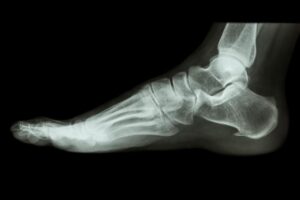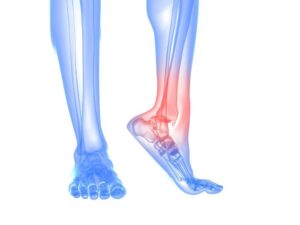The Benefits of Pulse Wave Therapy

There’s nothing worse than having a foot or ankle condition that’s painful, not healing, and getting in the way of living your life. Effective pain management can be tricky, and undergoing surgery comes with risks and doesn’t guarantee you’ll end up pain free.
Fantastically, if conservative management hasn’t helped your pain levels, podiatrists Ryan Golub, DPM, and Zachary Flynn, DPM, now offer an incredible solution at Arizona Foot Health in Phoenix, Arizona. Using Pulse Wave Therapy, they make it easy for you to heal and relieve pain without surgery or hassle.
These are many of the amazing benefits from getting Pulse Wave Therapy.
Understanding Pulse Wave Therapy
An FDA-cleared technology, Pulse Wave Therapy treats a number of foot and ankle conditions with ballistic sound waves. Pulse Wave Therapy is an excellent alternative to surgery or physical therapy if you have chronic pain or other issues not responding to conservative treatment.
You can find healing and relief from Pulse Wave Therapy if you have:
- Achilles tendinitis
- Plantar fasciitis
- Shin splints
Our podiatrists might also recommend Pulse Wave Therapy for other foot and ankle problems.
Getting Pulse Wave Therapy is easy and only takes 5 minutes at the Arizona Foot Health office. During a treatment session, our podiatrists move an applicator around the area that needs treatment, which promotes pain relief and healing.
After getting treatment, you can immediately go back to your usual routine. You often see results right away and get full relief in 4-5 weeks.
Pulse Wave Therapy benefits
When you get Pulse Wave Therapy, there are a number of benefits for your foot and ankle health, as well as your quality of life.
A non surgical solution
Pulse Wave Therapy is completely noninvasive, and you don’t have to get any anesthesia as part of treatment. This means you don’t take on any of the usual risks or downtime associated with surgical procedures.
Promotes healing as well as pain relief
Pulse Wave Therapy does more than offer superficial relief of pain. The reason your pain gets reduced from this procedure is that it encourages your body to internally heal damaged tissues.
The sound wave used in Pulse Wave Therapy encourages your body to head your impacted area by creating tiny microtraumas. This reminds your body of the old injury, restarting a regenerative natural healing process.
Gets results quickly
A typical Pulse Wave Therapy treatment only takes 4-5, five-minute sessions, spaced one week apart, with healing beginning immediately or gradually over the treatment period. This is faster than other kinds of pain relief treatments, like physical therapy.
Treatment is pain free
During a Pulse Wave Therapy treatment, you won’t experience any pain and don’t need to use any pain relief medication or ointment. After the session, at most you might experience mild soreness or bruising in the treatment area.
Cost effective
Pulse Wave Therapy gets results in just a few sessions, so it ends up being less expensive than longer treatments like physical therapy. It’s also less expensive than most surgeries.
If you have a foot and ankle soft tissue issue that isn’t getting better, Pulse Wave Therapy can help. To make an appointment to discuss Pulse Wave Therapy, contact Arizona Foot Health today.
You Might Also Enjoy...
The Achilles Heel
Given Arizona’s climate, patients are able to remain active year round. It’s why we all chose to live here. But…
Alleviating Back Pain and Other Benefits of Custom Orthotics You Didn’t Know About
Would you ever imagine that custom foot orthotics could improve your quality of life? That’s what many people say after…
9 Helpful Tips to Prepare Your Home Before Bunion Surgery
When moderate interventions, such as wearing wider shoes or using pads in your shoes, fail to ease your bunion pain…
When Should You Go to the Doctor for an Ingrown Toenail?
In most cases, you can nurse an ingrown toenail at home with over-the-counter pain medication, topical antibiotic creams, and soaking…
6 Home Exercises to Keep Your Ankles Strong
Ankles that feel wobbly and weak are vulnerable to injury. If you play sports, run, jump, or just walk often,…
Is Surgery My Best Option For Treating Bunions?
You have a bunion and it isn’t pretty, but if your bunion is small enough, or doesn’t hurt, you may…






